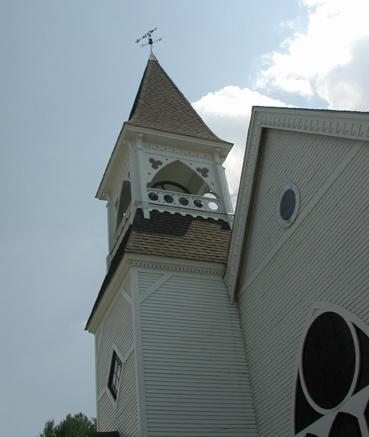
WAKE FOREST, N.C. (BP)–Southeastern Baptist Theological Seminary is well on the way to fulfilling a commitment to plant 50 churches in New Hampshire by the year 2007.
The church-planting successes are largely due to the seminary’s North American two-plus-two program that enables students to begin planting churches while earning a degree.
“The North America two-plus-two program is a partnership representing local churches in which seminary students are identified, recruited, developed, trained and deployed as church planters in North America,” said Bill Brown, Nehemiah Project director and evangelism professor at Southeastern.
“It is a developmental program designed to help them get the academic skills and practical experience so that they can go and have greater success in planting a church,” Brown said.
Students in the North America two-plus-two program study on the Wake Forest, N.C., campus for two years, then finish their degree by attending biannual seminars throughout their stint as church planters.
Two-plus-two students serve under a two-year partnership between the seminary, the North American Mission Board and state Baptist conventions.
Southeastern President Paige Patterson said the North America two-plus-two program was born from his prayers that God would give the institution a program that would complement the successful international church-planting program developed a decade ago.
Soon after the implementation of the two-plus-two program, Patterson committed to send students to New England to begin 50 new churches by the year 2007 as part of his dedication to North American church planting.
Since 1997, Southeastern students have helped plant 32 churches in New Hampshire, a state where less than 20 percent of the population attends church on a regular basis.
Despite stanch resistance to evangelical churches in the predominantly Universalist Unitarian region, God is moving in New Hampshire, Patterson said.
“The very impossibility of it makes it absolutely possible,” he said. “If you want to go somewhere where the world says it is impossible, but God said it’s possible, then go to New England and eastern Canada.”
John Kuespert, director of missions for the New Hampshire Baptist Association, credits a stronger emphasis in evangelism in church-planting strategy as a reason for the success in New Hampshire.
“Our evangelism is direct. We can’t be worried about being overly aggressive,” Kuespert said. “The key to New Hampshire church planting is the commitment of church planters to come up here and exercise direct evangelism.”
Patterson said church planting is not for everyone but encourages every student in his seminary to seriously consider the option.
“Some students will do the tough thing and go to existing churches and accept the problems that were there from the past 50 years. Why do that when you can go to a situation to have the joy of presenting the gospel to people who have never heard it a single time in their lives?”
As a North American church planter, Patterson said, “You have the privilege of building a genuine New Testament church. Therefore, I think that every person who comes through this seminary ought to seriously ask God if he might want to use them in an area like New England to prove that God is still God of the possible.”
–30–
(BP) photo posted in the BP Photo Library at http://www.bpnews.net. Photo title: NEWS IN NEW HAMPSHIRE.
















